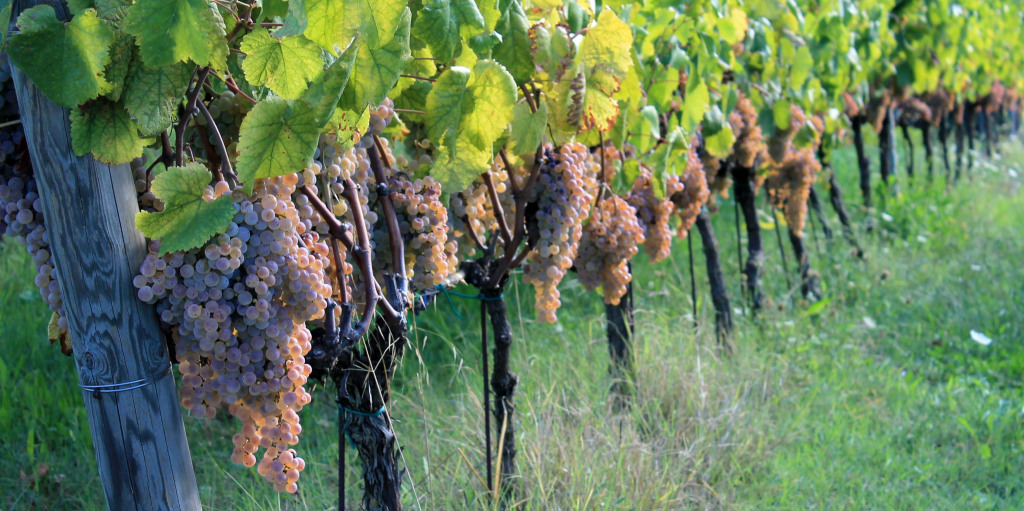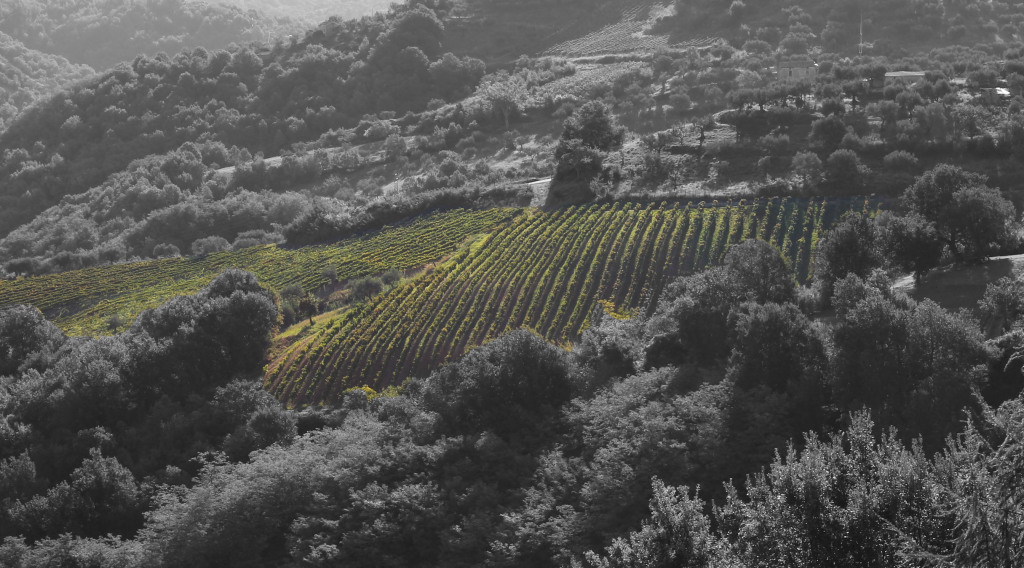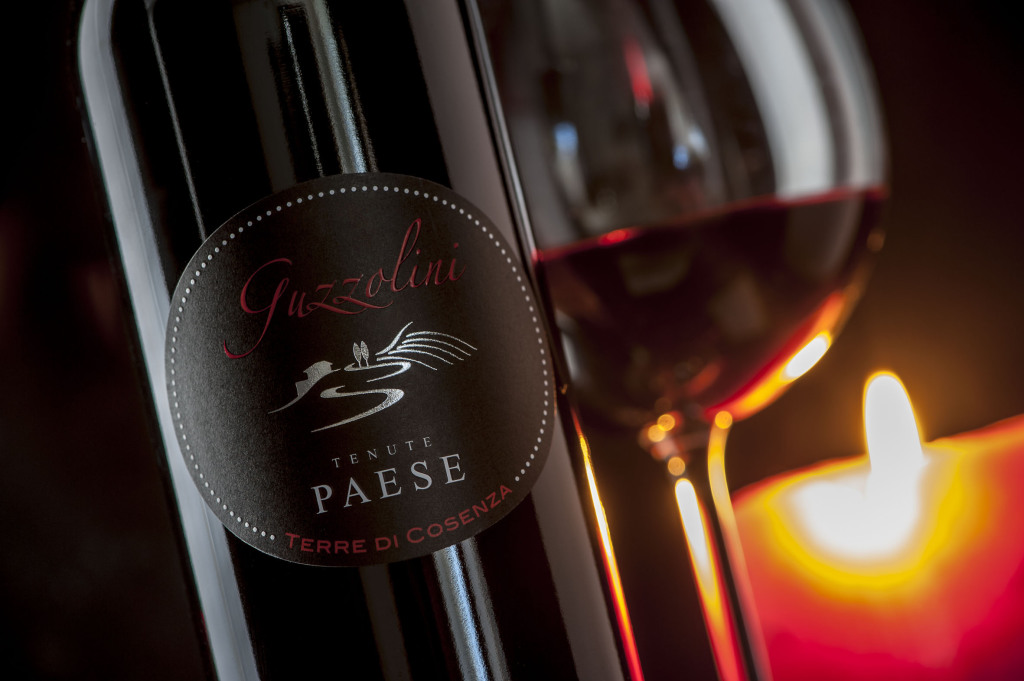 The ‘Fratelli Paese’ farm is located on the hills of Donnici Inferiore, in Calabria, with 15 hectares of vineyards, at the foot of the wooded plateau of Sila, a few miles from the beautiful sea of the Tyrrhenian coast. This area is m 250 above sea level, a lucky corner characterized by Mediterranean microclimate, with an unchanged balance between moisture and dryness. Here valuable wines are produced, recognized at the European level by the DOC guarantee of origin. Passion combined with research and updating for the operators who work in the company do not neglect any of the stages of maturation, grape harvest, and wine preservation. The Tenuta Paese challenge consists in obtaining excellent taste from mostly autochthonous vines, preserving a typically Italian identity, addressing the international markets.
The ‘Fratelli Paese’ farm is located on the hills of Donnici Inferiore, in Calabria, with 15 hectares of vineyards, at the foot of the wooded plateau of Sila, a few miles from the beautiful sea of the Tyrrhenian coast. This area is m 250 above sea level, a lucky corner characterized by Mediterranean microclimate, with an unchanged balance between moisture and dryness. Here valuable wines are produced, recognized at the European level by the DOC guarantee of origin. Passion combined with research and updating for the operators who work in the company do not neglect any of the stages of maturation, grape harvest, and wine preservation. The Tenuta Paese challenge consists in obtaining excellent taste from mostly autochthonous vines, preserving a typically Italian identity, addressing the international markets.
Magliocco, Mantonico, Pecorello, Malvasia Bianca, Greco Nero, and Greco Bianco are the local grapes, but Tenuta Paese also boasts the presence of such Italian wines as Montepulciano d'Abruzzo, Fiano di Puglia, and Sangiovese, as well as such international vines as Cabernet Sauvignon.
 Magliocco – A refined and elegant wine, characterized by a ruby red colour, where the aroma of dried fruit and pepper prevails on its smooth and perfectly balanced taste. This harmony is preserved, notwithstanding its considerable alcohol content. Its low acidity makes it an ideal wine for ageing, especially when aged in barrels. At table it is combined with the rich pasta of Southern Italy tradition, seasoned with meat sauce. It is considered one of the best combinations with game dishes.
Magliocco – A refined and elegant wine, characterized by a ruby red colour, where the aroma of dried fruit and pepper prevails on its smooth and perfectly balanced taste. This harmony is preserved, notwithstanding its considerable alcohol content. Its low acidity makes it an ideal wine for ageing, especially when aged in barrels. At table it is combined with the rich pasta of Southern Italy tradition, seasoned with meat sauce. It is considered one of the best combinations with game dishes.
Mantonico – This wine boasts an ancient story. It arrived in Calabria from Greece in the eighth century and it is known as ‘Gods’ wine’, served only to the most distinguished guests. Its name derives from the Greek term ‘mantonicus’, which means ‘prophetic’, indicating the power of divination which the consumers who drank it in abundance acquired. For this reason it was mainly consumed by soothsayers and priests during the orgiastic rites of Dionysus. Mantonico grapes have always been used for producing passito wines, characterized by amber colour and velvety flavour, which remind orange-blossom. Today it is also produced as a dry white wine, in which the aromas of white fruit, hawthorn, and thyme dominate. It is ideal for accompanying both first and second courses prepared with fish. The Mantonico passito is served cool as an aperitif or as a dessert wine to accompany ripe cheeses and such dry pastries as the ‘Mostaccioli’ of Calabria.
Pecorello – It is a white grape variety which risked becoming extinct, saved at the last moment by diligent wine growers. It is attracting more and more interest in the wine markets. Very fragrant, soft wines, rich in taste, are obtained. Its scent obviously reminds citrus and flowers. Its taste is fresh, fruity, and lasting. The proximity of the sea add a salty note. The cultivations of Pecorello are for the most part organic and biodynamic, suitable for this type of very strong and resistant vine. It is served in combination with such very tasty and aromatic fish-based courses as dried salt cod with potatoes and hot pepper.
Malvasia Bianca – It shows itself with a typical straw-yellow colour, with intense golden tones. Its scent is fruity, with hints of apricot, hazelnut, almond, and floral notes. It presents good alcohol content and, among white wines with high alcohol content, is characterized by its lightness, thanks to which it goes well with both ice creams and fruit preparations.
Greco Bianco – It is characterized by amber and deep yellow colour, as well as refined, sweet, soft and full taste. It reaches 17 degrees and is classified as a superior sweet wine for the end of the meal. In comparison with other white liqueur-like wines, it is served very cold, in order to enhance its ethereal scent and persistent flavour with appetizers, fish- and egg-based courses. Instead, at room temperature it is served with dry cakes and pastries.
Greco Rosso – Its bright red colour is the best chromatic presentation for this wine characterized by an intense scent as well as a dry and persistent flavour. It is classified as a superior table wine and its alcohol content is of about 12 degrees. Its dry taste and persistent scent go very well with cheese- and meat-based courses, vegetable flan, first courses with vegetables. A particular characteristic of the wines produced with Greco rosso consists in that they accompany in a pleasant and harmonious way the rich pizzas of the tradition of Calabria, cheese- and spicy sausage-based.
 From potatoes to wine
From potatoes to wine
The geographical particularity of Calabria consists in that its territory is mostly constituted by hills and mountains, quickly passing from the sea to the mountains. From the historical point of view, in colonizing this region the Greeks were amazed by its strong vocation for wine growing, so that they called it ‘Oenotria’, that is land of vineyards. From here the ancient Greeks brought the art of fine wine throughout the Mediterranean Sea, also becoming big esteemers of the wines produced in this beautiful region. Some vines which still today are grown in the territories of Donnici dates back to Greeks.
The Tenuta Paese has its roots in the beautiful green lung of Sila, located in the north-centre of Calabria. In the nineteenth century, Francesco Paese was famous for the successful cultivation of potatoes, cattle breeding of the autochthonous Calabrese breed, and above all for the sale of the impressive trunks of Corsican pine which characterize the woods of Sila. These activities were later inherited by his son Antonio, who, going away from Calabria when he was a young man, left the management to the next generation of his family. The Tenuta Paese family boasts a long history of passion for their land and innovation, preserving respect for traditions, environment, and territory. The adventure in the production of high quality wines with a distinct identity began with the new millennium, thanks to the brothers Vincenzo, Ercole, and Aldo.
With the availability of high quality wines and a long history of excellence in agricultural entrepreneurship, their will of asserting the value of a name and a story has been the engine of a big challenge. The attention for natural cycles and environmental impact allows obtaining valuable grapes for the production of wines characterized by strength and elegance, complexity and unique flavours.
